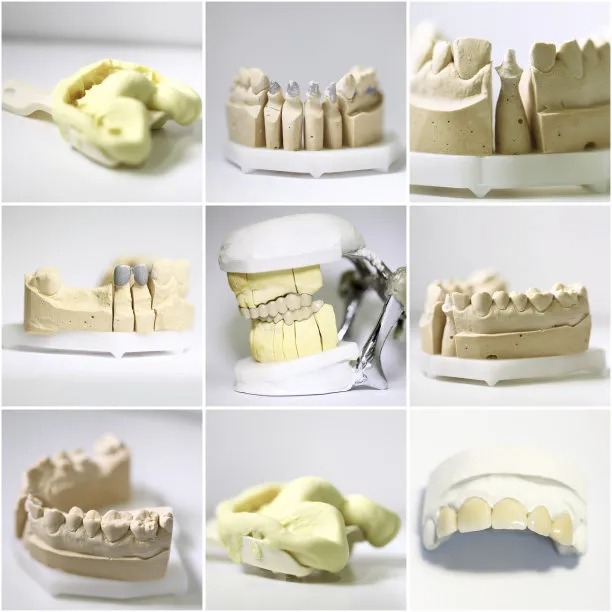Summary: Undergoing root canal treatment can seem daunting for many patients. However, understanding the essential safety measures involved can vastly improve the experience and outcome of the procedure. This article outlines four key safety measures that every patient should be aware of before undergoing root canal treatment. These measures include the importance of choosing a qualified dentist, understanding the need for pre-treatment evaluations, knowing the available sedation options, and being aware of aftercare procedures. By focusing on these crucial aspects, patients can lead themselves to a more comfortable and successful dental experience.
1. Selecting a Qualified Dental Professional

One of the most critical aspects of ensuring a safe root canal procedure is choosing a qualified dentist. A dentist with specialized training in endodontics has the skills and knowledge to handle complex cases efficiently. Patients should research potential dentists by checking their credentials, experience, and online reviews. This research helps ensure that the chosen professional is reputable and skilled.
It can also be beneficial to seek recommendations from family, friends, or primary care providers. Word-of-mouth referrals often lead to finding a trusted dentist within your community. Additionally, don’t hesitate to schedule consultations with potential candidates, where you can ask about their approach to root canal treatments and share any concerns you may have.
Moreover, verifying that the dental practice follows the latest safety protocols is essential. Ensure they are equipped with modern technology and adhere to high standards of hygiene and patient care. A well-equipped practice not only promotes safety but also enhances the treatment quality.
2. Understanding Pre-Treatment Evaluations
Before undergoing a root canal, patients typically undergo a comprehensive evaluation to assess their dental condition. This evaluation usually includes X-rays or other imaging techniques to visualize the root structure and detect any complications such as abscesses or cracks. Understanding the results of these examinations is vital for patients, as they will inform the treatment plan.
Additionally, discussing the procedures specifics with your dentist during this evaluation can help clarify any uncertainties. Patients should ask about their diagnosis, the necessity of the root canal, and any alternative treatments. A clear understanding helps patients feel more confident moving forward with their treatment plan.
Pre-treatment evaluations also serve to identify any underlying health issues that may complicate the procedure. Patients should be transparent about their medical history, including medications they are currently taking, allergies, and any existing health conditions that could impact the treatment.
3. Knowing Available Sedation Options
Many patients have anxiety surrounding dental procedures, making sedation an important component of the overall treatment experience. Understanding the different sedation options available can help patients make informed decisions that enhance their comfort during root canal treatment. Common options include local anesthesia, nitrous oxide (laughing gas), and intravenous (IV) sedation.
Patients should discuss their anxiety levels and preferences with their dentist to determine the most suitable sedation method. Local anesthesia is often sufficient for many, as it numbs only the specific area being treated. However, for those who experience higher levels of anxiety, nitrous oxide or IV sedation may be more appropriate.
It’s important for patients to ask about the associated risks and benefits of each sedation option. Understanding how the chosen method may affect recovery and the overall procedure can alleviate some anxiety and set realistic expectations for what to expect during and after treatment.
4. Being Aware of Aftercare Procedures
Post-treatment care is paramount in the recovery process following a root canal procedure. Patients should be well-informed about the aftercare recommendations provided by their dentist. This often includes guidelines for pain management, dietary restrictions, and signs of potential complications such as infection.
Managing discomfort after the procedure is an integral part of the recovery process. Dentists frequently prescribe pain relievers or recommend over-the-counter medications to help alleviate any soreness. Patients should follow these guidelines closely to ensure a smooth recovery.
Patients also need to adhere to any dietary restrictions provided by their dentist. Soft foods are often recommended for the first few days, as this reduces pressure on the treated area while it heals. Being cognizant of oral hygiene practices is equally important, as maintaining cleanliness will help avoid infections and promote healing.
Summary:
Understanding essential safety measures before a root canal treatment can significantly improve patient experiences. From selecting a qualified professional to post-treatment care, awareness is critical to ensuring a successful outcome. By remaining informed and proactive, patients can facilitate better dental health and comfort.
This article is compiled by Vickong Dental and the content is for reference only.
Vickong Dental
Vickong Dental is a large medical group established in Hong Kong in 2008 by professors from well-known medical universities in Guangdong and Hong Kong, as well as medical doctors from key national '985' universities (including Master's supervisors and senior professors). The chain of branches brings together expert dentists with PhDs and Master's degrees from Hong Kong and Mainland China, committed to providing high-quality dental treatment.
"Vickong Dental Practices the University Motto of 'Healing and Serving Society,' with a Stable Operation for Sixteen Years. It Has Been honored with Hong Kong Enterprise Leaders's Choice,' and is a Global Trusted Implant Center for the Nobel Implant System. Recommended by Hong Kong Metro Broadcast and Guangdong Television, it Serves Customers from Over Thirty Countries and Regions, Gaining the Trust and Favor of Citizens from the Guangdong-Hong Kong-Macau Greater Bay Area and Surrounding Cities.

Thousands of customers' unanimous praise
The most recognized and highly recommended dental service by customers in the Guangdong-Hong Kong-Macau Greater Bay Area
We Ensure You Receive Detailed Care and Attention Here
Hong Kong standards, Shenzhen prices, Your Trusted English-speaking dentists

Vickong Dental Medical-Grade Instrument Disinfection Process
Vickong Dental Medical-Grade Instrument Disinfection Process

Vickong Dental Chain: A Warm and Comfortable Environment for Treatment






Appointment Hours

Q&A
Why choose Vickong Dental?
Vickong Dental practices the university motto 「Medicine to Benefit Society」, with each branch bringing together highly qualified dentists with doctoral and master’s degrees from Hong Kong and the Mainland, and has maintained seventeen years of steady operation。Recipient of 「2024 Hong Kong Enterprise Leaders Brand」, 「2025 Hong Kong Enterprise Leaders Brand」, a Nobel Biocare Global Trusted Implant Center, and a brand recommended by Metro Radio Hong Kong and Guangdong TV。
To date, we have served customers from more than thirty countries and regions,earning exceptionally high word-of-mouth recognition and trusted recommendations from residents across the Guangdong-Hong Kong-Macao Greater Bay Area and surrounding cities
We have eight major branches in Zhuhai、Shenzhen,and a consultation and service assurance center in Hong Kong,so you can book a free consultation at any time for any questions,which is very reassuring.
If I do not accept the quotation after the CT scan, will I be charged??
No! As long as the actual treatment has not started, you will not be charged any fees.
Will there be any additional charges during the treatment process?
No, there won’t be any additional charges. Before treatment begins, we will clearly explain the treatment plan and its corresponding fees. Only after the patient agrees and signs the consent form will we proceed with the dental service.
Can I pay in Hong Kong dollars?
Yes. Vickong Dental accepts payment in Hong Kong dollars. The amount will be converted based on the exchange rate of the day, and the applicable rate will be clearly communicated to you in advance.
Can I reschedule my appointment at any time?
Yes. Please contact us via **WeChat** or **WhatsApp** as early as possible, providing your original appointment time and details, along with your preferred new date and time slot for rescheduling.













